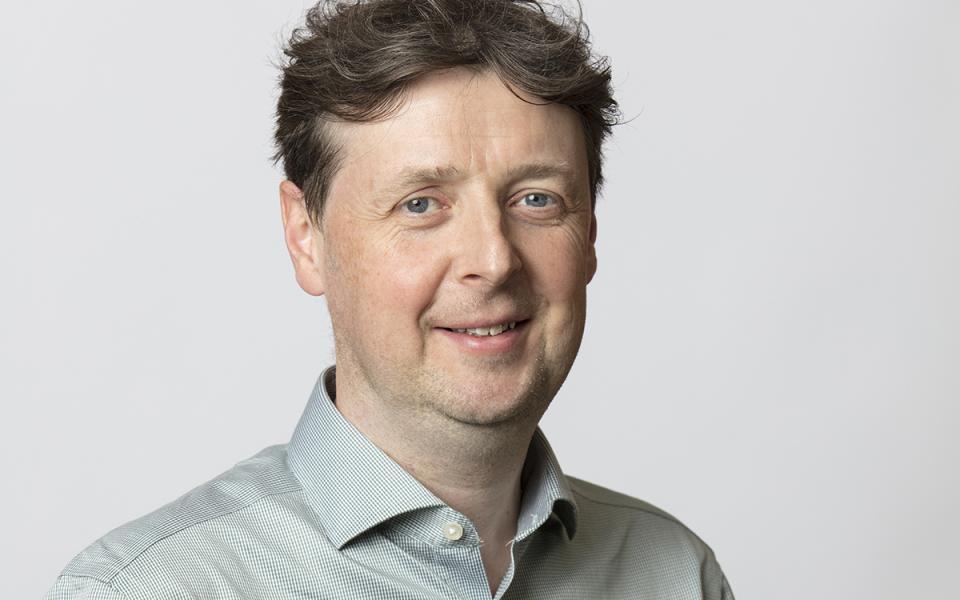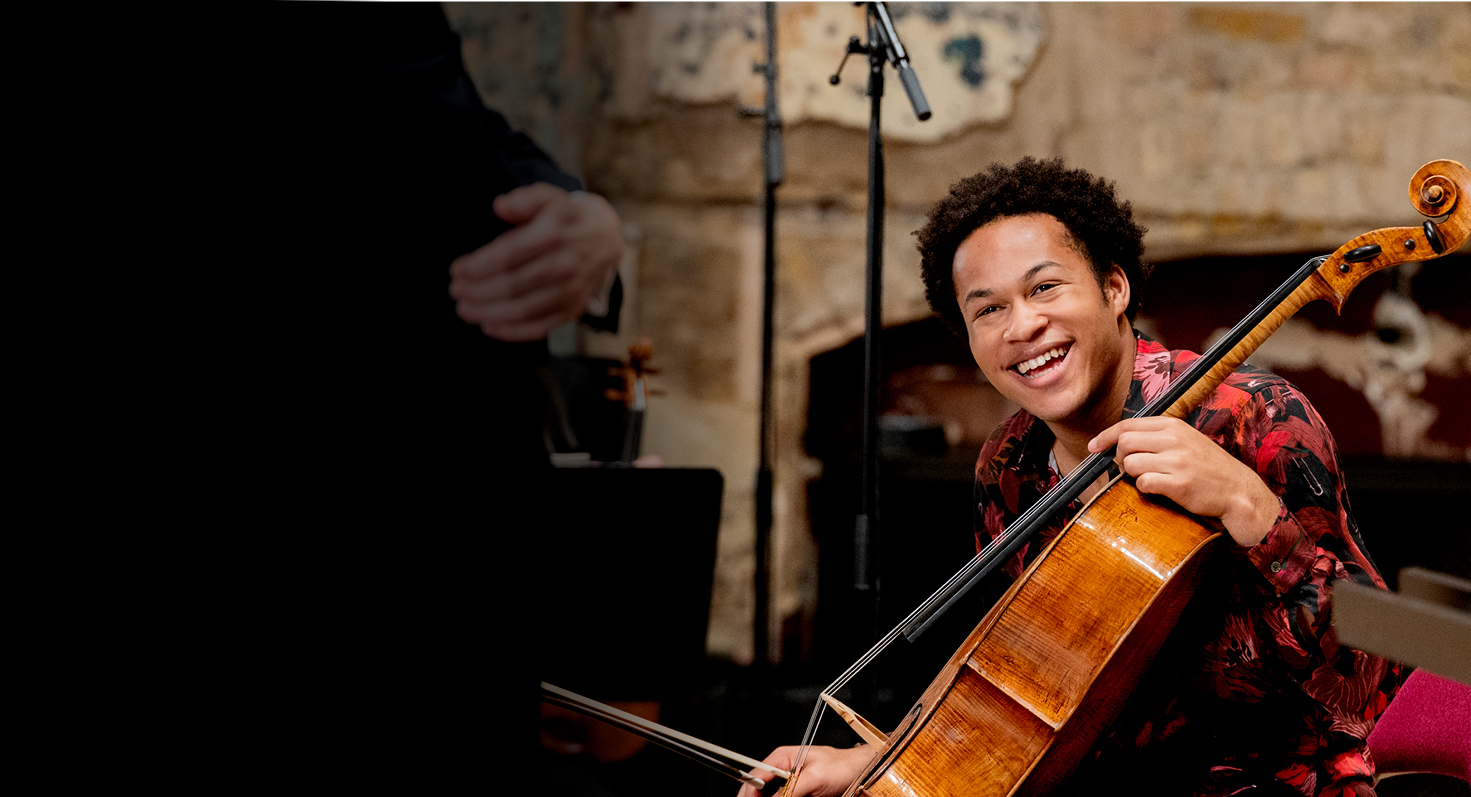Meet Director of Artistic Planning Ben Larpent

This month, Claire Whittle interviewed our new Director of Artistic Planning Ben Larpent to find out more about our programme planning and his recent introduction to the Philharmonia.
“Every day is different and is a mixture of trying to focus on the really short term as well as looking two or three years ahead.”
How did you get into Classical Music and how did you come to be in Artistic Planning?
I started listening to and enjoying classical music when I was seven or eight, and I started learning the piano and the French horn when I was still very young. That interest and enjoyment continued throughout my school years, and I went on to study music at Edinburgh University. For a while I had grand plans to be a professional trumpet player, but I very quickly realised my talents lay elsewhere, and that I was much better at organising people and making things happen. My first job out of university was Orchestra Manager for the Scottish Chamber Orchestra, which I did for 5 years and which I absolutely adored. I travelled all over Scotland, and the world, working with incredible musicians. I then moved to London and briefly represented film and television composers, but I realised my passion lay in live performance, so I went to work for one of the London agencies in orchestral touring, which combined my passions for travel and music. After that I moved on to the Southbank Centre where I was responsible for programming their own classical music season for ten years, and that led me to the Philharmonia.
What drew you towards joining the Philharmonia in this new role?
With the creation of this new role within the organisation I saw an opportunity to make a difference. Having been to many amazing Philharmonia concerts over the years, it was a really exciting prospect for me to work with this world-class orchestra, its extraordinary musicians, artists such as Esa-Pekka Salonen and Santtu-Matias Rouvali, and to lead on developing the artistic strategy into the future.
You only joined us in the summer, but it has been quite an eventful period, what would you say is your most memorable Philharmonia moment to date?
It’s very hard to pinpoint one because it’s been such an eventful six months – we’ve done some amazing concerts and recording sessions since I started. If I had to highlight a couple, they’d be the concerts with Santtu and Esa-Pekka, and I’m not just saying that because they’re our Principal Conductor and Principal Conductor Designate! Santtu’s concert was such an interesting and varied programme with everything from Copland to Florence Price and Steve Reich. Esa-Pekka’s programme was just such gorgeous music, with the works by Ravel, and the Britten songs sung by the wonderful soprano Julia Bullock. It was also fascinating to see super-star violinist Pekka Kuusisto taking to the podium and conducting us for the first time in the Beethoven concert with Nicola Benedetti. Pekka and Nicky obviously enjoyed working with each other, and the orchestra clearly loved having Pekka at the helm!

Some of the Friends have asked how you programmed those concerts – was it a combination of your ideas and those of the artists?
Exactly. With some conductors I’m making specific repertoire suggestions. With others, such as Esa-Pekka and Santtu, I don’t need to do that, but I’m just offering practical guidance, such as the length of programme we’re looking for, the size of orchestra we can have under social distancing, what other repertoire has already been done or is being considered by others. Those programmes are very much artist-led. With some of our guest conductors there is the opportunity to be more specific: for Paavo Jaarvi’s Philharmonia Session this summer, we already knew we wanted to have Nicola Benedetti play The Lark Ascending. Thinking about what to put with it, we knew that Paavo’s recordings of Beethoven Symphonies with the Deutsche Kammerphilharmonie, Bremen were extraordinary, so I think we just asked if he could come and work his Beethoven magic in London!
Can you describe what a typical day looks like in your role at the Philharmonia?
There’s no such thing as a typical day. Every day is different and is a mixture of trying to focus on the really short term as well as looking two or three years ahead. Currently we’re trying to get everything re-programmed for January to March. With social distancing, all the programmes we had originally announced have had to change. At the same time, we’re finalising details in the 2021/22 season and also progressing plans for the 2022/23 season. I spend a lot of my time in meetings and having phone calls with artists and their managers discussing ideas for the future. It’s a real perk of the job to be able to have a planning meeting with Esa-Pekka or Santtu!
“…it’s equally fantastic to hear the orchestra performing Stravinsky, or the latest contemporary music.”
Are there any sneak peeks you can give us into the upcoming season?

Do you remember the first time you saw the Philharmonia?
I vaguely remember coming to hear the Philharmonia when I was at school, under Giuseppe Sinopoli, but my clearest memories are in the last 10-15 years. A lot of those highlights are Esa-Pekka concerts, from Wagner’s Tristan & Isolde, or the Rite of Spring in his Stravinsky series. There are so many moments that stand out.
You mention Wagner and Stravinsky, are they some of your favourite composers? Can you name a favourite?
It’s very hard to name one. In my job I think it’s important to have an open mind and broad taste! I absolutely love the music of Bach, but I also really enjoy discovering new music from young composers, and everything in between. There is nothing quite like hearing the Philharmonia play a great Mahler or Bruckner symphony, but it’s equally fantastic to hear the orchestra performing Stravinsky, or the latest contemporary music. So no, I don’t really have a favourite composer. I have lots of music that I love listening to from across the centuries.
Finally, a non-music related question. How have you been spending your weekends this year?
I spend a lot of my spare time with my kids. I have two small children and enjoy getting out into the local parks with them! I also enjoy running, which is how I relax and escape from the stresses of everyday life. I tend not to listen to music when I’m running – I prefer podcasts. Lately I’ve been enjoying Louis Theroux’s podcast Grounded.
Support the Philharmonia
Donate today to Keep the Philharmonia Playing for our audiences around the world

